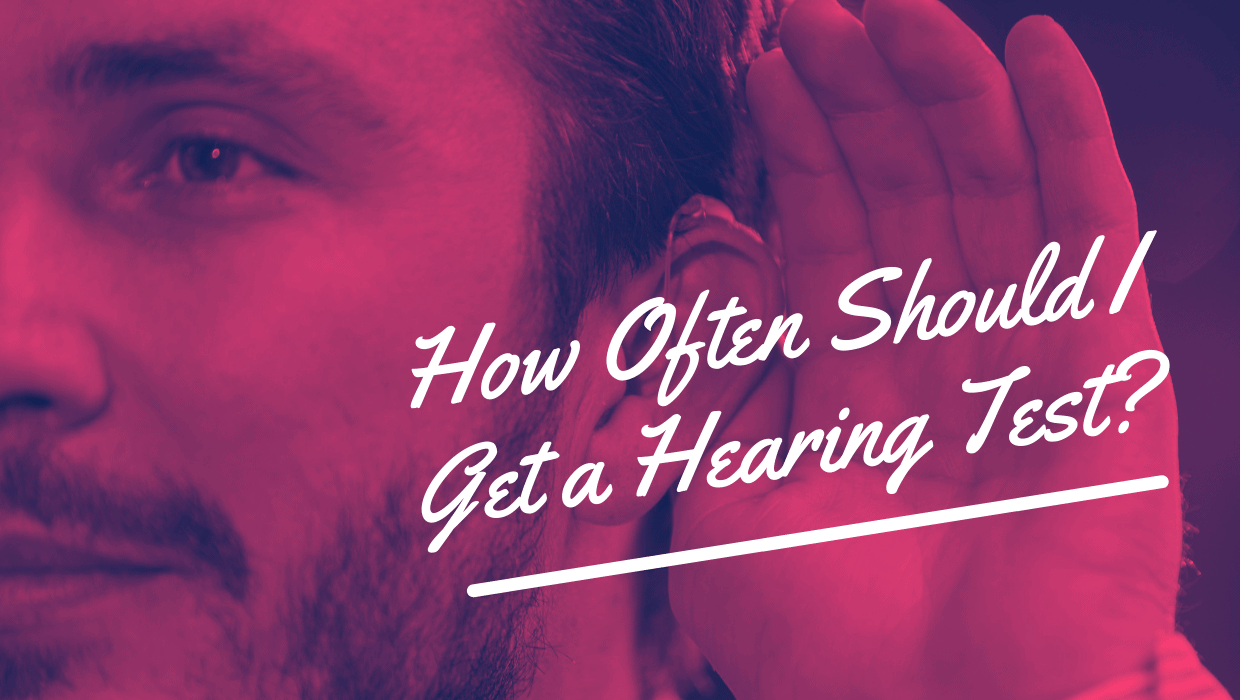Do you have an annual physical, an annual dental appointment, and a routine vision exam? Many people have some regular medical checkups as part of their yearly healthcare routines. However, many people never even consider their hearing health! In the same way you check your vision and dental health, you should also have regular hearing tests to monitor your hearing health.
Hearing Loss is Gradual
Most people don’t think much about their hearing health. In fact, they may not even notice a hearing loss unless it’s a very sudden or major hearing loss. Often hearing loss is a gradual process, and we don’t notice the day to day changes in our hearing abilities. Waiting until you notice a hearing loss means that you have probably had hearing loss for a few years.
Routine Hearing Tests
If you’ve been living with untreated hearing loss for several years, you have fewer treatment options, and you may have a hard time hearing certain sounds even with a hearing aid. That’s why routine hearing tests are so important. You’ll be able to detect hearing loss early, and treat hearing loss before it becomes a major hearing loss.
How Often Should I Get a Hearing Test?
Not many people talk about their hearing health, so it can be hard to know how often you should get a hearing test. It’s not that you’re ignoring your ears, you just don’t know how often to get your hearing tested.
How often you should get a hearing test actually depends on your age. Many older adults have age related hearing loss, and this is because our hearing abilities tend to change as we age. In fact, half of all seniors over the age of 75 have a hearing loss.
Children: Newborns have a hearing screening to test their hearing abilities. It’s recommended that children have a hearing test if parents or teachers notice any difficulty hearing. For kids, untreated hearing loss can interfere with their ability to learn and grow, so it’s important that their hearing is tested if there are any signs of hearing loss. Routine hearing checks for children are also common.
Teens: Just like kids, teenagers rely on their hearing to help them interact with their peers and learn in the classroom. Teenagers should have a hearing test if you’ve noticed any changes in their hearing.
Adults Aged 18 – 60: Adults don’t usually have routine hearing tests. They wait to test their hearing until they notice a change, and by then they may have been living with hearing loss for several years. Adults aged 18 – 40 should schedule routine hearing tests every three to five years. If you notice any changes in your hearing, schedule a hearing test right away.
Adults Over 60: If you’re over the age of 60, you have a higher risk of developing age-related hearing loss. This hearing loss, called presbycusis, is due to damage in the ear after a lifetime of hearing all the sounds around you. This hearing loss makes it hard to hear high pitched sounds, and makes it harder to follow conversations. By the age of 65, around 35% of seniors will have a hearing loss. Adults over the age of 60 should have a hearing test every year, even if they haven’t noticed any signs of hearing loss.
Adults in Noisy Professions: If you work in a noisy profession, you’re more at risk of developing a hearing loss. These professions include construction workers, farmers, factory workers, bar tenders, musicians, and law enforcement officers. Adults working in noisy professions, or who have a lot of loud hobbies, should schedule annual hearing tests.
Hearing Aid Wearers Also Need Hearing Tests
If you have hearing loss and you’re currently wearing hearing aids, you should still have routine hearing exams. For example, if you wear glasses you don’t stop going for eye exams. In the same way, you’ll need regular hearing tests to monitor your hearing loss. We recommend that hearing aid wearers get a hearing test every year. This will show you if there are any changes in your hearing health.


